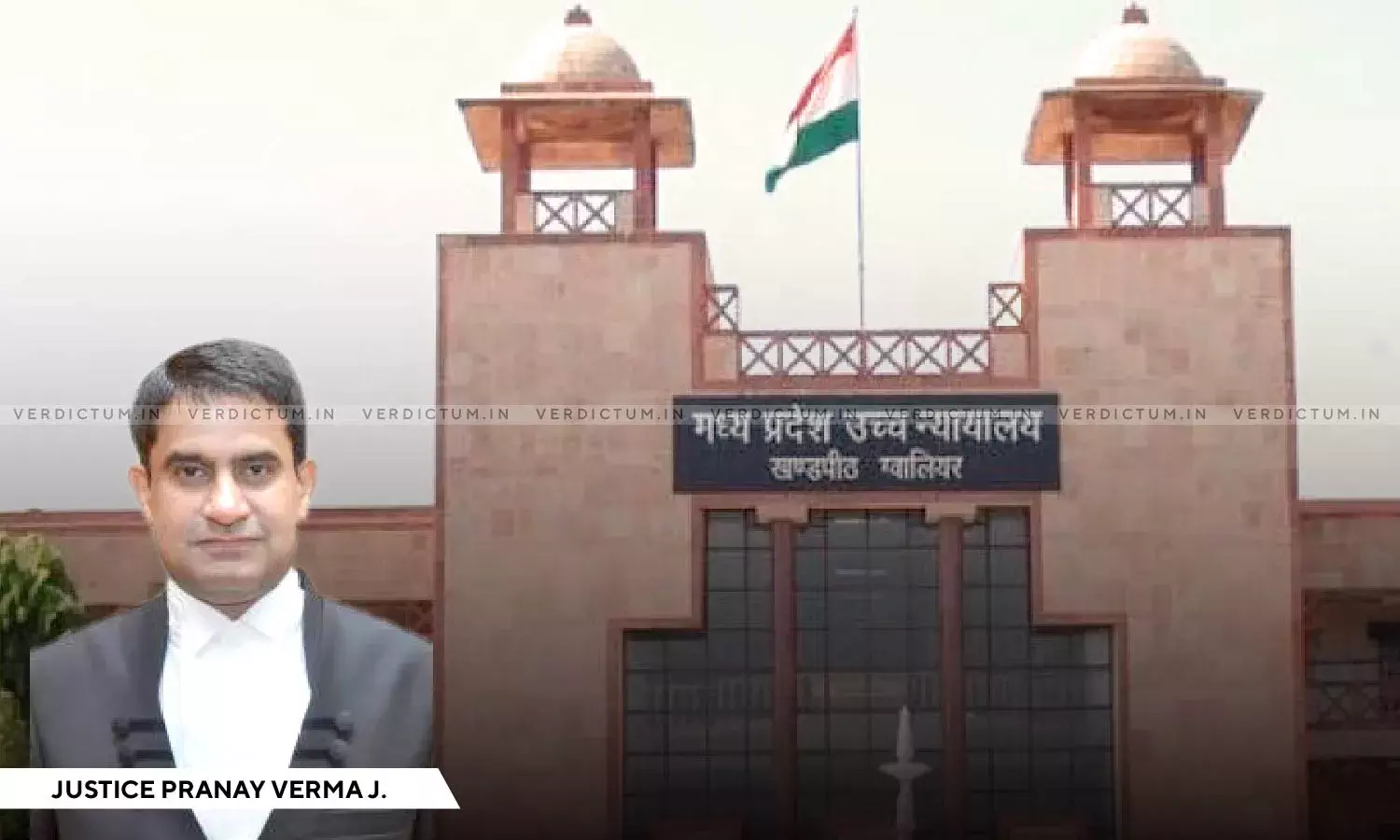Not Prejudicial To Rights Of Defendant- MP HC Allows Litigant To Withdraw Suit & File Afresh After 7 Yrs Of Institution

The Madhya Pradesh High Court, Indore Bench allowed an application under Order 23 Rule 1 and 3 of the Civil Procedure Code (CPC) to withdraw the suit with liberty to file it afresh, after seven years of the institution of Suit before a Civil Judge on the ground that allowing to file the suit afresh would not be prejudicial to the rights of defendants.
The Bench of Justice Pranay Verma observed that considering the stage of the proceedings and the fact that the petitioner was not negligent in prosecution of his case, if withdrawal of suit was allowed, it would not have any prejudicial effect upon the rights of the defendant. Thus, it would be fair to allow the petitioner to withdraw it and institute a fresh suit.
The Bench further observed that "There has not been any decision on merits in the case in any manner. It is not a case where plaintiff has already led his evidence and wants to withdraw the suit since he wants to come with body of fresh evidence to put forth his case. The stage of the suit is not where witnesses of plaintiff have failed to support his case and he wants to obtain an opportunity to commence the trial afresh in order to avoid the result of his previous bad conduct so as to prejudice the opposite party. Thus in my opinion the reasons given by the plaintiff in his application for seeking leave to withdraw the suit with liberty to institute a fresh suit would constitute "sufficient grounds" as contemplated under Order 23 Rule 1(3)(b) of the CPC."
In this case, the petitioner in 2015 had instituted a suit for declaration of his title and further sought for permanent as well as mandatory injunction against the defendants for making any construction in the future or alienating the suit land in any manner. During the Course of proceedings, the petitioner moved an application before the Trial Court for withdrawal of suit with liberty to institute it afresh on the same facts and cause of action.
The Trial Court rejected the application observing that the grounds taken by the petitioner were not sufficient. Aggrieved by the order of Trial Court, the petitioner approached the High Court.
Advocate Sameer Anant Athawale appearing for the petitioner submitted that the Trial Court had committed gross error of law in rejecting the application as the petitioner due to his ignorance and lack of legal knowledge, could not make the necessary averments in the plaint as he could not furnish the detailed facts to his counsel nor could file the relevant documents and that the suit would fail if such pleadings and documents were not allowed to be filed.
Advocate Meena Chapekar appearing for the defendant submitted that the grounds taken by the petitioner were not sufficient grounds to allow the petitioner to withdraw the suit an institute a fresh suit and that the petitioner himself was prolonging the matter by filing applications for amendment of the plaint.
The issue dealt with was-
whether the failure on part of petitioner, to make necessary pleadings in the plaint and not filing the relevant documents along with it and not making the pleadings in respect of the documents filed along with the plaint could be said to be sufficient grounds for allowing him to withdraw the suit with liberty to institute a fresh suit for the subject matter of present suit.
The Court observed that the actual trial of the suit had not started and no right was being created in favour of the defendant which could be withdrawn be the petitioner. "The proceedings have not reached a stage where it can be said that withdrawal of the suit would have any prejudicial effect upon rights of the defendant."
The Court further observed that the petitioner might have been negligent towards prosecution of his suit but the same was in respect of his pleadings and filing of documents and said that "The proceedings of the case do not show that the plaintiff has been so negligent in prosecution of his case that he may be casticized to be such a litigant that his rights for a fair trial ought to be denied to him. The suit cannot be said to have reached such a stage where its withdrawal would permit the plaintiff to thwart any finding which may be imminently recorded against him."
The Court allowed the petition and observed that if the plaintiff was forced to continue with the present suit, it would amount to shutting out a fair trial on merits and punish him for errors made by him in good faith which can only be effectively set right by permitting him to institute a fresh suit.
The Court, therefore observed that the Trial Court had erred in rejecting the application and had failed to exercise jurisdiction vested in it.
Accordingly, the petition was allowed.
Cause Title- Trilochan Singh v. Indrajeet Kaur
Click here to read/download the Order

